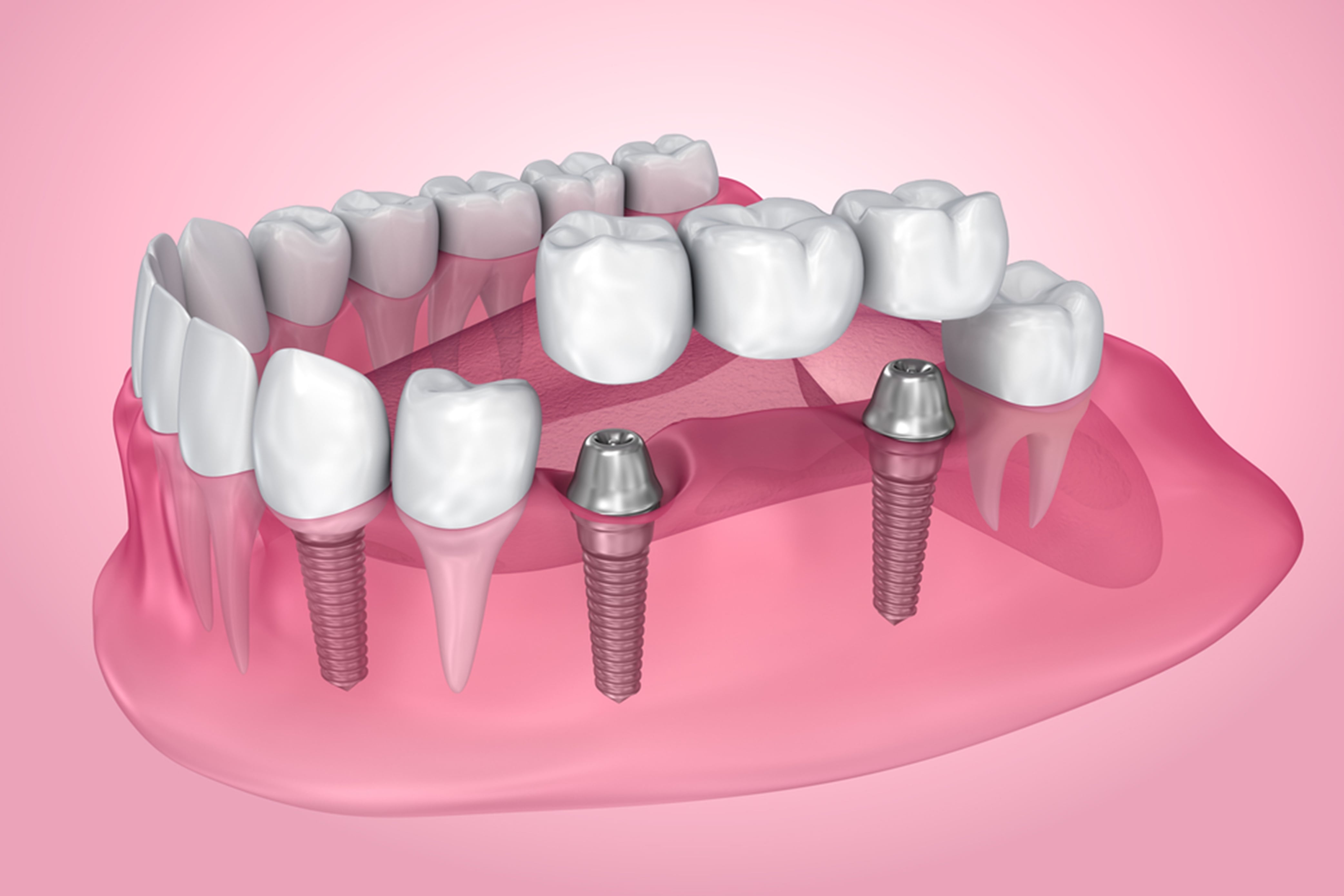You can lose teeth by a wide variety of factors, ranging from accident and injury to tooth decay, gum disease, and serious infections. While each of those causes of tooth loss can be very serious, so can living with missing teeth for any lengthy period of time.
Why should you replace missing teeth?
Missing teeth will contribute to an inability to speak naturally, to chew and eat properly, and to maintain proper nutrition. Beyond those factors, the gaps in your jaw will have completely understandable negative effects on your appearance, confidence, and self-esteem. The negative consequences of tooth loss extend far beyond all of those issues, however.
As stable as they seem on a day to day basis, your teeth can move within your jaw. When gaps open up in your jaw, teeth adjacent to that gap have a natural and normal tendency to pivot toward that gap or to fill that gap. Those changes to the alignment of your remaining natural teeth can negatively affect your ability to eat and speak, and can cause ongoing and progressive orthodontic problems that may take time and money to correct.
If you’ve suffered tooth loss, the staff at a dental clinic in Saskatoon will recommend taking some steps to protect yourself from all these negative consequences for the sake of your health, personal confidence, and lifestyle. One of the options your dentist will tell you about is dental implants in Saskatoon.
What are the pros and cons of dental implants?
Dental implants are ideal solutions to tooth loss for many people, but not for everyone. Here are the advantages and disadvantages of implants, generally speaking, that you should discuss with your dentist.
The advantages of dental implants
- Dental implants in Saskatoon are stronger and more durable than dentures or bridges
- Implants do not rely on any other teeth for support, but are inserted directly into your jaw
- No other teeth will need to be altered to accommodate implants
- Implants help to prevent bone loss by replacing the root of your tooth
- Implants are secured completely to your jaw and hold your final restoration without any slipping, looseness, or noise while using your mouth and teeth in any way
- Implants restore completely natural dental function
- Dental implants in Saskatoon required no specialized care, but only careful attention to daily dental hygiene habits
- Dental implant procedures have a success rate of 98%
The disadvantages of dental implants in Saskatoon
- Implants are placed in your jaw during a surgical procedure which — like any surgical procedure — involves some risk
- Bacteria can enter the implant site and cause an infection called peri-implantitis
- If your implants extend into your sinus cavity, you may develop and increased likelihood of sinus infections or sinusitis
- The nerve supplying your bottom teeth can sustain damage via the drills used to prepare for your implant placement, or by the injection of anesthetic
- The process of obtaining implants through a dental clinic in Saskatoon can take many months to one year to complete given the six-month recovery time following your implant procedure
- You may require additional procedures to accommodate dental implants depending on the condition of your jaw. One example of such an additional procedure is a bone graft to ensure your jawbone is strong enough to support the titanium implant
- Insurance coverage is not always available for dental implants, particularly if the implants are for cosmetic purposes
Even taking into account the risks of the implant procedure — which you should discuss and review carefully with your dentist — implants have a 98% success rate and provide a permanent solution for tooth loss that restores full dental function and a complete smile. Dental implants in Saskatoon contribute to improved health and day to day life by permitting completely natural chewing, eating, and speaking. They also encourage the development of new and healthy bone tissue, while preventing natural teeth from shifting into gaps left as the result of tooth loss which can affect your bite and cause teeth alignment issues.
Unlike dentures and bridges which typically need to be replaced every seven to ten years, implants are an investment that will last your lifetime if you take reasonable steps to care for the health of your natural teeth, gums, and jaw.
